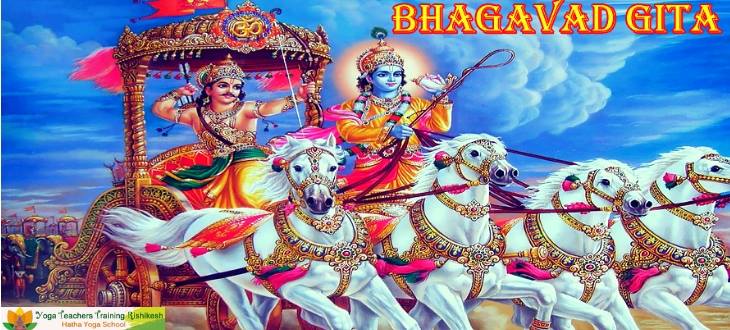BHAGAVAD GITA
Wisdom can’t be defined as knowledge, experience, or the quality of being wise. It is more than the sum of these essential aspects. To master wisdom, one must be patient, calm, and optimistic about the situations around them. The question arises of how Yoga can lead us toward wisdom.
According to experts, wisdom is a deep understanding that allows one to recognize the truth and make decisions with intellectual power. It requires common sense, good judgment, and experience adapting to situations accordingly. Yoga is an ancient activity; people learn to become wise during sessions.
-
Defining the word ‘Jnana’
Jnana (wisdom or knowledge) in Yoga is considered one of the most challenging paths in this ancient activity. It requires great strength to sustain determination and intellect. In Jnana yoga, a person learns to know the strength of their mind by analyzing the thought process, the reach of the thinkability, and identification with the ego.

The theme behind this word is fundamental to the lessons in the most respected and popular book, the Bhagavad Gita. According to the Gita, Lord Krishna explained the definition of Yoga. He elaborated on wisdom to his disciple Arjuna, saying, “He will reveal again a supreme wisdom, of all wisdom the highest.” In the final six chapters, he lays out the makings and characteristics of the path of Jnana yoga.
-
Concepts of Wisdom
The concept of wisdom implies that there are things to be wise about. Krishna describes two such “things”: an individual’s relationship with a “field,” a living body/mind, and the same individual’s relationship with the ultimate knower of all fields, the supreme Spirit.
While explaining Yoga in the Bhagavad Gita, Lord Krishna explains the concept of being wise and characterizes it into two main concepts:
- Individual’s relationship with a living body or mind
- The exact relationship with the Supreme spirit (knower of all living minds and bodies)
Lord Krishna explains that every human is a combined collection of a field (Prakriti) and a field-knower (Purusha) – basically, a body/mind and a consciousness that resides within it. He also summarizes the two as:
- Prakriti is the cause of activity: the doer, the means of doing and the thing is done.
- Purusha is the reason for the consciousness of pleasurable and painful experiences.
Lord Krishna explained the path of wisdom. In conclusion, wisdom is defined by two fundamental concepts of human life: the oppression of Purusha and Prakriti and the ultimate closure of the purpose of life.
-
Making a better living
According to Lord Krishna, life can be explored by judging our surroundings, knowing our likes and dislikes, making decisions, and adjusting our attitudes toward situations. However, to live a satisfactory life, one must respond wisely.
Jnana Yoga is a great way to establish a sense of understanding and determination for the situations occurring in our lives. Lord Krishna embraced the concepts of wisdom several times while explaining the importance of Yoga in Bhagavad Gita.
- Knowing the Self
Becoming wise in life is not a difficult task. Yoga lessons from the Gita have been a great source of knowing our true selves, and meditation is one of its best activities for concentrating on our purpose with deep mindsets. Through meditation, we can witness the characteristics of the fields (body and mind) and the relationship with the supreme Spirit.
